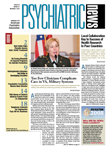At least half the burden of depression among adults in the United States comes from work impairment, disability, or absence. For some workers, being depressed means giving up on work altogether, well before people their own age leave the workforce, according to University of Pennsylvania researchers.
Their study found that premature retirement is 40 percent more likely among workers with depression.
Early retirement can be a double hardship for workers in their late 50s or early 60s who retire without Social Security benefits. Those benefits don't start until at least age 62, and Medicare kicks in at age 65, said Jalpa Doshi, Ph.D., a research assistant professor of medicine; Daniel Polsky, Ph.D., an associate professor of medicine; and biostatistician Liyi Cen, M.S., all of the Department of General Internal Medicine at the University of Pennsylvania.
“In addition to financial hardship, earlier retirement as a result of depression may potentially have far-reaching detrimental effects on the health of late-middle-aged workers,” they wrote for the September online Health Services Research. Incomes decline for early retirees, and many may be without health insurance.
In the past, employers might have been happy to see workers impaired by depression or other causes of poor health leave. But like many aspects of retirement, a realistic view today is more ambiguous, said Debra Lerner, M.S. Ph.D., and David Adler, M.D., of the Health Institute at Tufts–New England Medical Center in Boston. Lerner and Adler have collaborated on several studies examining how depression affects job status and performance. They have found that treating depression improves work performance but does not eliminate all deficits in areas such as mental-interpersonal tasks, time management, or output tasks.
They told Psychiatric News that Doshi's study, which is based on a large population sample, “is a good companion to clinical studies of what happens to depressed people at work.”
“There's been a change in thinking,” said Lerner in an interview with Psychiatric News. “Early retirement is seen as not good for the economy, employers, or the employee. Now, keeping people in their jobs longer is important from both an economic and a health point of view.”
Doshi and her colleagues looked at 2,853 workers aged 53 to 58 years in 1994 who took part in the Health and Retirement Study, a nationally representative survey that has provided data for numerous other studies. Workers were followed every two years through 2002.
Among all labor force participants in the study, depression increased the odds ratio for retirement among men to 1.37 and for women to 1.40, wrote Doshi and colleagues. The effect was graduated: participants with active depression were more likely to retire than those with subthreshold depression, and the latter more than those with no depression.
Among men, the results held true for full- or part-time workers, wrote Doshi and colleagues. “However, for women, the effect of depression on retirement transitions was concentrated on those working part time rather than full time.”
The researchers' prospective approach meant that they could see if depression preceded changes in job status, rather than the other way around. They defined “retirement” as transitions form working full or part time to either retired or disabled status, since 89 percent of these workers never returned to the job.
“If it is unplanned and involuntary, retirement has detrimental effects on health, and those effects are worse on people with depression,” said Lerner.
Retirement in general can have a positive or negative effect on workers, said her colleague Adler. They may feel released from the day-to-day stresses of their job or they may miss the sense of purpose—and the income—derived from regular work. Nonetheless, he said, “living with depression is not a good outcome.”
An abstract of “Depression and Retirement in Late Middle-Aged U.S. Workers Health Services Research” is posted at<www.blackwell-synergy.com/doi/abs/10.1111/j.1475-6773.2007.00782.x>.▪
